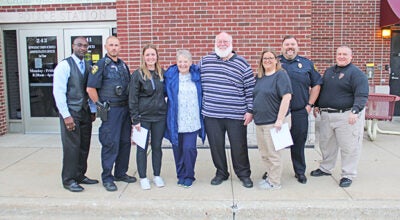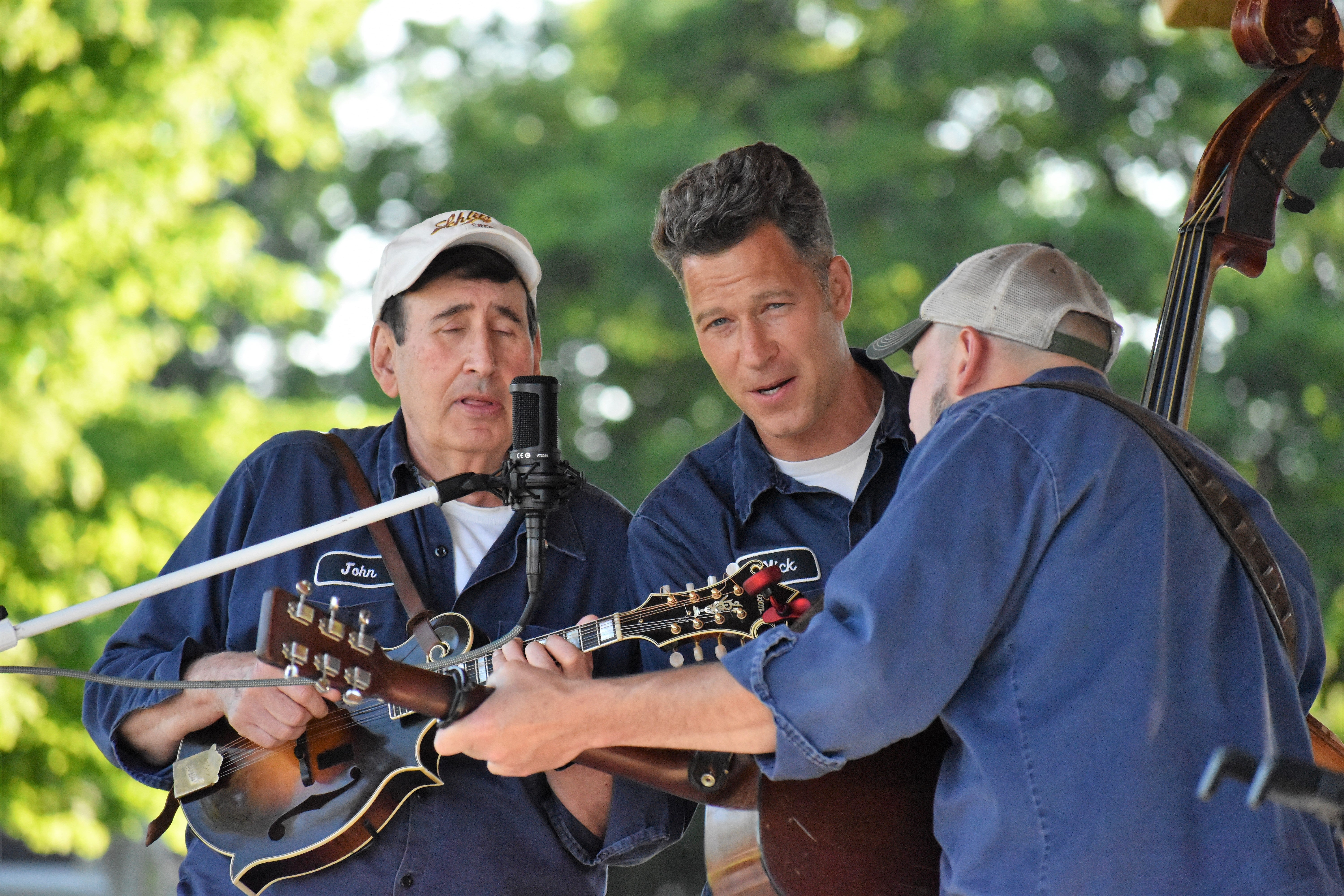The impact of victims
Published 11:31 pm Wednesday, October 12, 2011
BUCHANAN — Michigan Supreme Court Justice Stephen J. Markman told the legal community of Cass and Berrien counties Wednesday night about the ”ultimate victim impact statement” left by a New Jersey school teacher killed during a carjacking.
Kathleen Weinstein, 45, left a tape recorder running on the vehicle seat, capturing 24 minutes of her pleading in vain for her life with her captor before her husband and son were left without their wife and mother.
But she succeeded in eliciting enough details to help prosecutors build a case against her attacker, the New York Times reported in 1996.
“She would have been just one more forgettable statistic,” Markman said. Instead, “we have for posterity a remarkable tape. She made an effort to befriend him and to understand what went through his mind. She made an effort to reason with him and to warn him of the consequences of his actions. She appealed to his sense of logic and to his heart. The final agonies and torment that Kathleen Weinstein endured emerged so vividly from this tape recorder. Her legacy is the memorialization of a reality of an ordinary, garden-variety, homicidal victimization.”
Victim impact statements are much on the minds of the jurist because “there is no end to them.” He reads 200 to 250 appeals every month, including in the office, at home at the end of the day and on weekends, on vacations and even during breaks in his sons’ baseball, football and soccer matches.
About half involve criminal matters.
The sheer number of cases risks “assembly-line justice.”
“They all tear at the appellate judge, and doubtlessly the trial judge, too, no matter how long he or she has worn black robes,” he said.
“Each is both poignant and angry. Victim impact statements that testify to the victimhood of children are particularly wrenching. One young teenager, who lost her mother at the hand of a drunken driver, said she lives each day of her life in misery and laments that she didn’t even have a chance to hold her hand and say her final goodbyes. She couldn’t look at her because she was in too many pieces. In another statement in another court, we learn of a younger child who cries constantly for his lost mother and sister. He doesn’t seem to understand why she doesn’t come home.”
Markman, an attorney for 37 years, a former U.S. attorney for Detroit and an Assistant U.S. Attorney General, became a justice on the state high court on Oct. 1, 1999, winning re-election in 2000 and in 2004. His current term expires Jan. 1, 2013. He lives in Mason with his wife, Mary Kathleen. They have two sons, James and Charles.
To an audience at Orchard Hills Country Club that included Berrien County Bar Association President Gary J. Bruce, Cass County Bar Association President Leigh Feldman, Judge Alfred M. Butzbaugh, an attorney for 44 years and a past president of the State Bar Michigan, retired Berrien County Judge Casper O. Grathwohl of Niles, retired Cass County District Judge Paul Deats of Edwardsburg, Cass County Probate Judge Susan Dobrich, who served as mistress of ceremonies, Prosecutors Art Cotter and Victor Fitz, defense attorneys and legal secretaries, Markman addressed the criminal docket, “in particular the evolution of victims in the appellate process,” which Michigan pioneered.
“The first responsibility of the judiciary and of government,” Markman said, “is to protect citizens from criminal predators. Absent domestic tranquility — a phrase that appears in the preamble to our Constitution — I don’t think any community can prosper. Absent domestic tranquility, neither schools, businesses, parks or public places can flourish and people inevitably seek to flee to healthier environments. It’s also fair to say that the right to be free from criminal predators is the first of our civil rights. Any government which gets this sense of priority wrong, in my judgement, and which confuses what is necessary for government to do well with what is pleasant for government to do well does so at potentially great cost to its citizens. It’s ironic to me that many governments, as they expand the scope of their responsibilities, often end up performing their most important responsibilities in a poor fashion. Of all the things that have been said about my court over the past decade, I’ll forever be most proud of what was said in the Wall Street Journal — that there is perhaps no court in the country that has been less receptive to novel theories by which violent criminals can escape responsibility for their actions. To me, the criminal trial is not a sporting contest or a game … rather, it’s the process by which our judiciary attempts to uphold its obligations to protect the first civil right of all of our citizens to be free from criminal predators.”
Almost all of those appeals are brought by convicted criminal defendants.
They are usually in prison, so rarely appear in court, leaving their representation to attorneys.
”Unlike the trial environment, there are no plaintiffs or defendants in the appellate courtroom, no jury or witnesses,” Markman said. “Instead, we only have two lawyers, the prosecutor and the criminal defense counsel, arguing … The prosecutor cannot ordinarily appeal an acquittal. Our great task is to minimize mistakes by the lower courts. You can be very proud of the caliber of your trial courts here in Berrien and Cass counties.”
Markman noted his first job was “in this part of the world” as one of three staffers for then-Congressman Ed Hutchinson. Most members of Congress now have at least 25 aides.
“Mistakes in the criminal justice process are invariably tragic,” he noted. “To convict and incarcerate an innocent person is a tragedy. And to fail to convict and incarcerate a guilty person and to return that person to that neighborhood to continue to prey upon others is, I believe, an equal tragedy. The premise of our justice system is that mistakes will be minimized when the defendant has been given a fair trial in accord with the requirements of the law in our Constitution … We on the Supreme Court work very hard to take this responsibility seriously. We listen to the attorneys, we read their briefs, we discuss and debate their cases each week and we review the evidence by written transcripts of what occurred at trial. More than a few here are responsible in a direct way for those transcripts. Members of my court are no less fallible than any other person and none of us witnessed the criminal events coming before us, but we do our best to do justice, punishing the guilty and exonerating the innocent.”
Markman acknowledged the “risk that the sheer number of appeals coming before the court will overwhelm the justice system and lead to assembly-line justice, which must always be resisted. Each defendant is entitled to the court’s undivided attention when his or her case is being reviewed on appeal, and each is entitled to individualized treatment. But so, too, are victims entitled to individualized consideration. Their accounts are also entitled to our undivided attention, which is not as obvious a proposition as some of you might think. It’s worth knowing that the U.S. Supreme Court has decided over the past generation its leading cases involving the constitutionality of victim impact statements by 5-4 votes. We have ‘People vs. Jones’ because we treat criminal cases as offenses against all of us.”
Victim impact statements can be recorded orally verbatim or “sometimes written down in the victim’s own words,” said Markman, who has taught constitutional law at Hillsdale College since 1993. “They might be hand-printed or simply scrawled letter by letter. One can only read so many in one day, just as one can only read so many accounts of the brutal and heinous behavior of some offenders before one needs a break so these stories do not become entirely numbing. The flow of criminal appeals in our state never pauses and the sheer volume of victim impact statements mounts. These are often remarkably poignant reading because they tell the stories of persons no different from you or me, essentially selected by random fate. Persons who are in the wrong place at the wrong time — often in their own homes,” where they should feel safest.
“Persons whose lives may have been forever altered and for whom government has failed in carrying out its first responsibility,” he said.
“Such statements have become increasingly important in our criminal sentencing process as a result of new laws. Paul Maloney, your former chief judge of the (Berrien) Circuit Court was one of the authors. We’re not priests, ministers or doctors, we’re just judges. What comfort can we offer to grieving persons? … We owe them a great deal. The dignity of being treated as individuals. A justice process where their stories are seen in a context other than that of an endlessly moving assembly line. And to describe their own unique losses and sufferings. Victim impact statements relate a personal drama and we must reflect on each to fully understand the cost of the crime that has occurred.”







